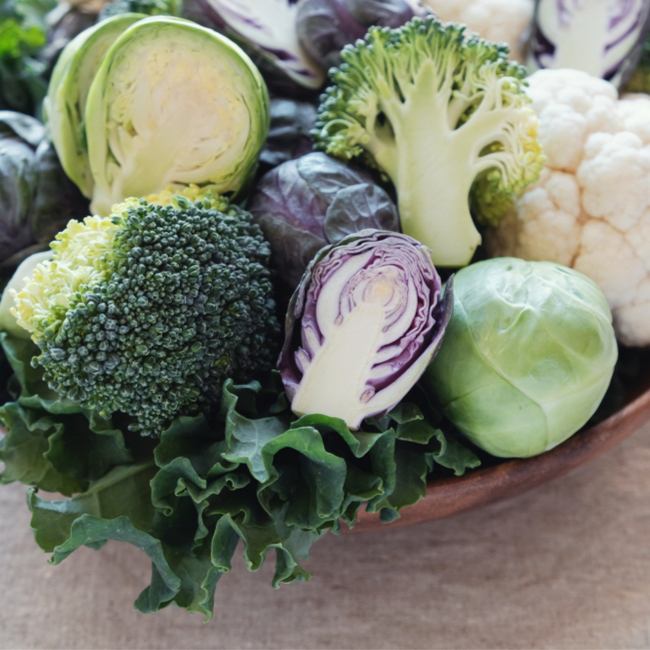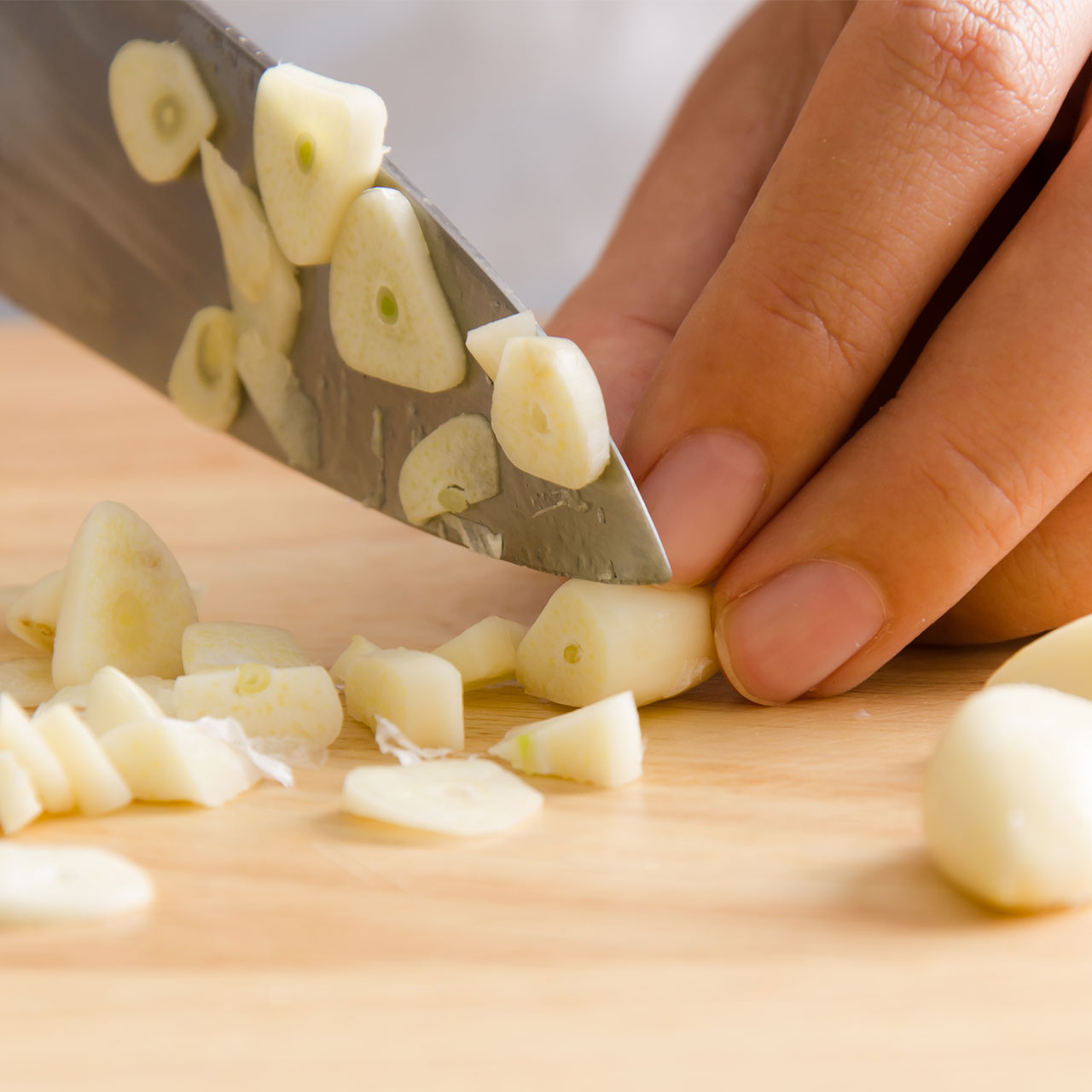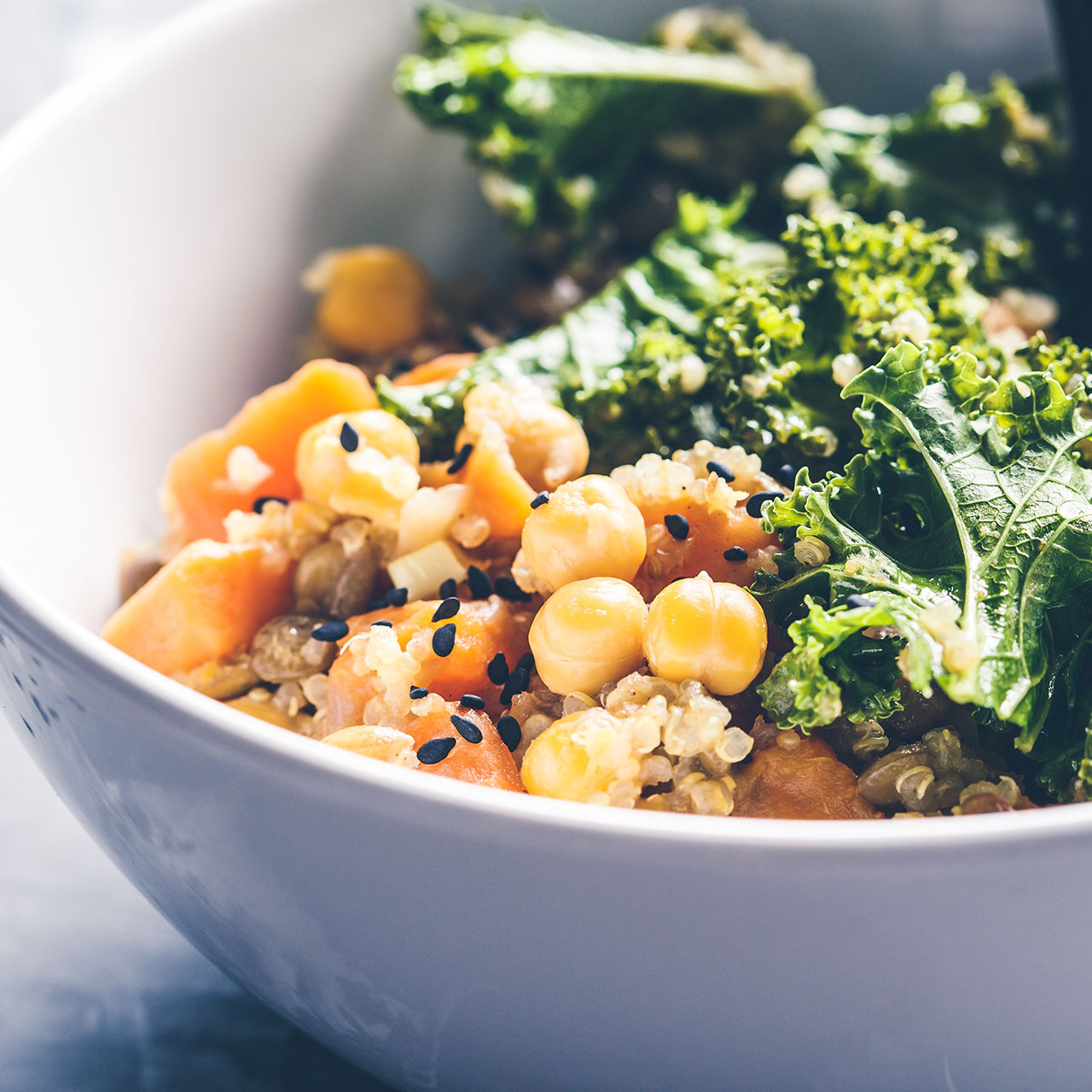This is an archived article and the information in the story may be outdated. Please check the time stamp on the story to see when it was updated last.
It’s no secret that vegetables are some of the most nutritious, filling foods you could include within your diet, increasing satiety and offering your body a number of vitamins and minerals for healthy function. However, despite their overwhelming volume of benefits, certain vegetables, particularly of the cruciferous variety, can cause your body to increase gas production, leading you to struggle with bloating and discomfort. It’s not ideal to entirely cut this delicious group of veggies out, so finding ways to prepare broccoli, cauliflower, sprouts and more in a way which reduces bloating will be essential to reaping their benefits without causing undue inflammation.
We checked in with registered dietitian Trista Best for her top tips on reducing the bloat factor of certain veggies, and it’s safe to say she single handedly rescued our gut health.


Slowly Integrate More
If you’re transitioning away from a diet that was lower in vegetables and working to quickly improve your eating habits, adding too many veggies at once might be to blame for your newly bloated belly. “Vegetables are great to integrate into your diet, but there are times when the types of vegetables we choose, our cooking methods, the quantity, or how quickly we eat them can lead to bloating,” explains Best. “Slowly integrate vegetables into your diet rather than introducing a lot of vegetables quickly.”
It can take some time for your body to adjust to increased amounts of fiber in your diet, so taking the time to slowly raise your veggie intake will allow yourself to improve your eating habits without bringing a shock of inflammation with it.
Eat Slowly & Get Some Movement
If you’re exceptionally hungry when heading into a meal it can be tempting to quickly inhale your food to satisfy that feeling. However, eating too much too quickly, especially in the case of vegetables, can make bloating that much worse. “Eat slowly when you are consuming vegetables,” suggests Best. This will reduce the amount of air you’re taking in while you eat these fibrous foods, eliminating some of the excess bloat that may accompany your meal. Best also recommends taking a walk once you’ve finished a particularly vegetable dense meal to allow trapped gas to ease.
Take A Digestive Enzyme
The reason that vegetables are so apt to make you bloat is the specific nutrients in their makeup. “The carbohydrates in some vegetables are responsible for bloating, especially among those individuals who do not make certain enzymes in sufficient amounts to digest them,” explains Best. “This can lead to gas and bloating, but by taking an enzyme when you eat these vegetables you can stop most of the bloating caused by a lack of enzymes.” That being said, it’s important to speak with your doctor or a healthcare professional before integrating any new supplements into your routine in order to reduce any negative reactions or side effects that may arise.


























